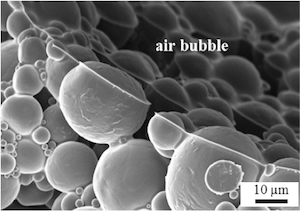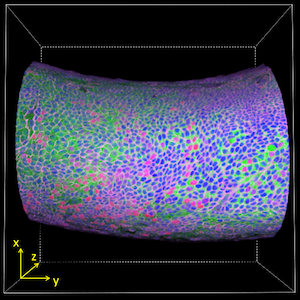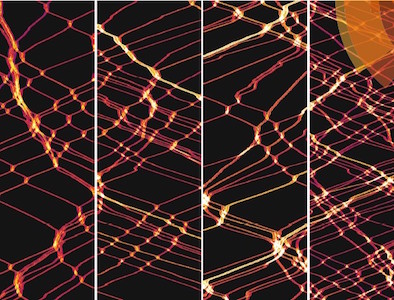 The Soft Matter Incubator (SMI) is broadly interested in pursuing fundamental science and technology questions in the highly disciplinary field of soft matter. Soft matter encompasses the study of a wide range of very different materials, which nevertheless share some commonalities. They are all characterized by internal length scales that are larger than the atom and, as a result, they all have large response functions. Additionally, their characteristic energies are on the order of room-temperature kT, often implying that entropy is an essential player. In many cases, these materials are mixtures of phases; they are structured fluids consisting of a solute that adds structure to a background solvent. They can also be single-phase materials, but with constituent molecules that are anisotropic in shape and that, as a result, are able to acquire a degree of order in between that characteristic of the isotropic liquid and crystalline states. Polymer solutions, colloidal suspensions, liquid crystals, aerosols, granular matter, emulsions and foams are examples of soft materials.
The Soft Matter Incubator (SMI) is broadly interested in pursuing fundamental science and technology questions in the highly disciplinary field of soft matter. Soft matter encompasses the study of a wide range of very different materials, which nevertheless share some commonalities. They are all characterized by internal length scales that are larger than the atom and, as a result, they all have large response functions. Additionally, their characteristic energies are on the order of room-temperature kT, often implying that entropy is an essential player. In many cases, these materials are mixtures of phases; they are structured fluids consisting of a solute that adds structure to a background solvent. They can also be single-phase materials, but with constituent molecules that are anisotropic in shape and that, as a result, are able to acquire a degree of order in between that characteristic of the isotropic liquid and crystalline states. Polymer solutions, colloidal suspensions, liquid crystals, aerosols, granular matter, emulsions and foams are examples of soft materials.
Of particular relevance to SMI is the understanding of many-particle collective and emergent behavior, which can include both equilibrium and non-equilibrium situations, addressed experimentally, via computer simulations or theoretically. Emergent here refers to situations whereby collections of particles develop properties and behavior that is absent without interactions and/or correlations, and that, as a result, are hard to anticipate from the properties of individual building blocks. Notably, this collective behavior is governed by classical laws, although many interesting analogies can be made with quantum systems. Understanding and controlling emergent material properties is an important thrust of the Soft Matter Incubator. Other relevant themes include studying confined soft matter, disordered solids and the creation and design of novel building blocks that are relevant in applications or that enable addressing fundamental questions.
Georgia Tech has a large number of faculty studying these types of materials, from many different perspectives. Some investigators focus on understanding and describing the fundamental and unique properties and phenomena observed in soft materials. Others use soft materials as model systems to address questions in condensed matter. There is also research being done related to synthesizing novel building blocks that produce materials with interesting optical, electrical and mechanical properties; these are often designed for specific applications, for example, in biomedical engineering and optics.
The goal of the Soft Matter Incubator is to enhance the synergy and visibility of the soft matter research and education that happens at our Institute, while enhancing the breadth and interactions with other centers in STAMI and across campus.



